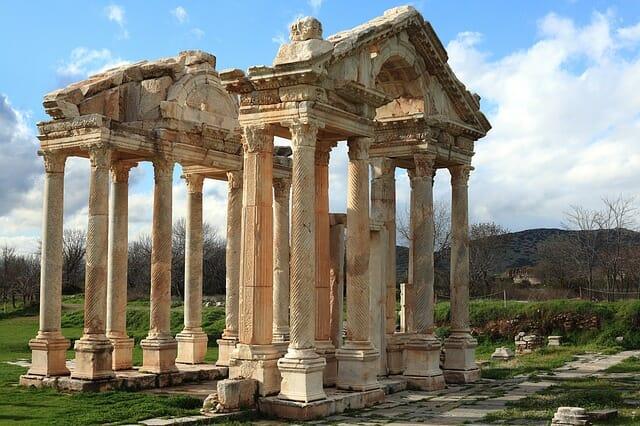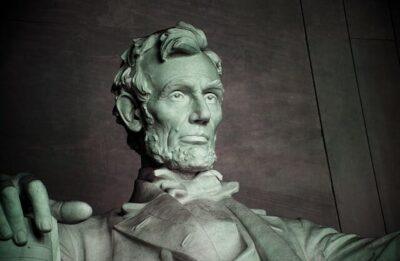You can never have a revolution to establish a democracy.
You must have a democracy in order to have a revolution.
—G. K. Chesterton, “The Wind and the Trees” (1909)
To an ancient Greek, “democracy” was inseparable from “dictatorship” of the common people.
—Doug Lorimer, Introduction to Democracy and Revolution (2001)
The Goal of the Constitution
The United States was founded as a republic, not a democracy. That is what the Framers intended and what the Constitution itself says, both explicitly and implicitly. The Constitution, for example, says that, “The United States shall guarantee to every State in this Union a Republican Form of Government . . ..” More important, though, are the assumptions implicit in forms of government created by the Constitution. It’s important to know that the Constitution assumes a universe of law and responsibility, of obligation and right … that no majority vote or despotic edict should be allowed to subvert.
At the same time, the Constitution also assumes the darkness, irresponsibility and fallen nature of humanity. It’s assumed that both citizens and politicians alike will attempt to find loopholes in the legal functions of civil government for personal gain or out of an idealist desire to create some type of utopia. The Framers of the Constitution worked hard to design a form of government that would check the lusts and desires of its citizens while still allowing the government to do its job. At the same time, they realized that any rule can be bent or broken when the people stand idly by — or worse, when they call for rule-breaking as their right.
By the first decades of the 20th century, however, there were strong forces at work in politics, education and the media striving to rewrite America’s history and redesigning its government. First, there was the historical revisionism that tried to convince the American people and the rest of the world that the United States was and had always been a democracy. Second, there was an educational and political attempt to transform the United States into an actual democracy — or at a minimum, to strengthen the democratic drive toward mob rule.
Put God Back Into History And Teach Your Kids What They Won’t Learn Anywhere Else!
Who would do such a thing? And why?
Democracy and Socialism
Because the propaganda campaign in favor of democracy has been so successful, we find it hard to consider the dangers in democracy or to even consider the unseemly company it has kept for the last 200 years. But let’s look at two representative statements from Communist heroes: Karl Marx and Mao Zedong.
In the Communist Manifesto (1848), Marx wrote that “the first step in the revolution by the working class is to raise the proletariat to the position of ruling class to win the battle of democracy.” Once the proletariat can force their will on the rest of the society through democratic process, they can recreate that society along Communist lines. In Marx’s thinking, democracy and communism were not enemies, but the first was a very necessary step to the second. Communists fought for a democratic revolution in order to accomplish a truly social revolution.
The Chinese dictator Mao Zedong argued along these same lines:
Every Communist ought to know that, taken as a whole, the Chinese revolutionary movement led by the Communist Party embraces the two stages, i.e., the democratic and the socialist revolutions, which are two essentially different revolutionary processes, and that the second process can be carried through only after the first has been completed. The democratic revolution is the necessary preparation for the socialist revolution, and the socialist revolution is the inevitable sequel to the democratic revolution (The Chinese Revolution and the Chinese Communist Party, 1939).
How does this work, exactly? First, foolish or devious factions push for a greater and greater expansion of the electorate. These factions demand (in the name of equality) that no one should be excluded from voting simply because they aren’t citizens, are felons or are under 18. These same factions work to inculcate in this expanding electorate the sure conviction that the “will of the people” is and ought to be the final standard in terms of which the nation and its government must move. The assumption, whether spoken or not, is that the people are basically good at heart and mean well.
Finally comes the historically inevitable. Voters discover that they can lawfully plunder the public treasury by majority vote. They then vote for every candidate or measure that will allow them to do just that. They will use the State to take money from the hard-working and productive to give to others who have not earned it. Usually that will involve themselves in some fashion — or at least that’s what they will expect. Along the way the State always takes a huge chunk of the money to cover administrative services and then a little extra for good measure. But the bureaucratic overhead always paid first. In this process, voters will surrender one political liberty after another until they have made themselves slaves. It is no accident that the welfare state and political despotism rise together.
Along the way, the voters and the existing government will inevitably appeal to the will of the people and throw down or ignore every legal restraint that might stand in the way. City, state and county jurisdictions will eventually be rendered subject to federal control and authority. The Congress, the president or the high court will assume all power so that it might effectively accomplish the will of the people.
This is nothing new, of course. As governor of New York, Franklin Delano Roosevelt said this:
Now, to bring about government by oligarchy masquerading as democracy, it is fundamentally essential that practically all authority and control be centralized in our National Government. The individual sovereignty of our States must first be destroyed, except in mere minor matters of legislation (March 2, 1930).
A secret oligarchy masquerading as democracy? For anyone who really wants to know how all this works should consider the basic rule of forensic accounting: Follow the money. At the dawn of the 20th century, who owned the media? Who funded the prestige universities and the teacher colleges? Who paid for the election of senators, congressmen and presidents? Who set up tax-free foundations to influence political policy? Follow the money and find out who calls the shots.
Fixing the Blame
And yet there is a great danger in fixing blame on the elite alone. The prophet Micah wrote, “For all people will walk every one in the name of his god” (4:5). The political forms that any given people uses to express and implement its moral and social convictions are … like those convictions themselves … inescapably religious. A nation acts socially and politically in terms of its gods.
Put God Back Into History And Teach Your Kids What They Won’t Learn Anywhere Else!
The Greeks and Romans both operated in religious faith as they constructed their democracies and their republic, and that faith was, in principle … wholly demonic. Only God’s restraining grace enabled the ancient Greeks and Romans to construct temporarily workable systems. And if the Roman republic briefly allowed its people more personal liberty than the Athens offered hers, we must remember that some idols are more immediately horrible than others. We should always be thankful for God’s common grace. We should also marvel at what divine providences the Roman people learned, for a little while, to value abstract virtue, representative government, and written law. Yet none of Rome’s advantages stopped the rapid decline of the Republic into tyranny or prevented the rise of Caesar. God’s patience and grace does have limits. Something we as American Christians would do well to consider.
The Nature of Virtue
The Framers of the Constitution knew well enough that political forms alone cannot guarantee liberty. They counted heavily on the morality of the American people, but they did not always understand the sources of that morality. By 1787 most Americans were either professing Christians or had at least grown up in a culture where Christian values were normative (common grace, again). Some may find it hard to believe but by the time the new federal government was up and running, that consensus was already changing. Even movements within the church were shaping and rewriting American ideals, and sadly these new theologies corrupted or even silenced the voice of the Gospel.
Public education soon put a generally unnamed deistic god at the head of a civil religion that required virtue, but could not produce it. Because all the children of the Enlightenment, right-wing and left-wing, were seriously wrong about one thing: The natural man isn’t naturally good. We’re natural sinners, at war with both God and our fellow man.
Only the Gospel of Jesus Christ can work true virtue in our hearts and produce godly government.
 Off The Grid News Better Ideas For Off The Grid Living
Off The Grid News Better Ideas For Off The Grid Living






